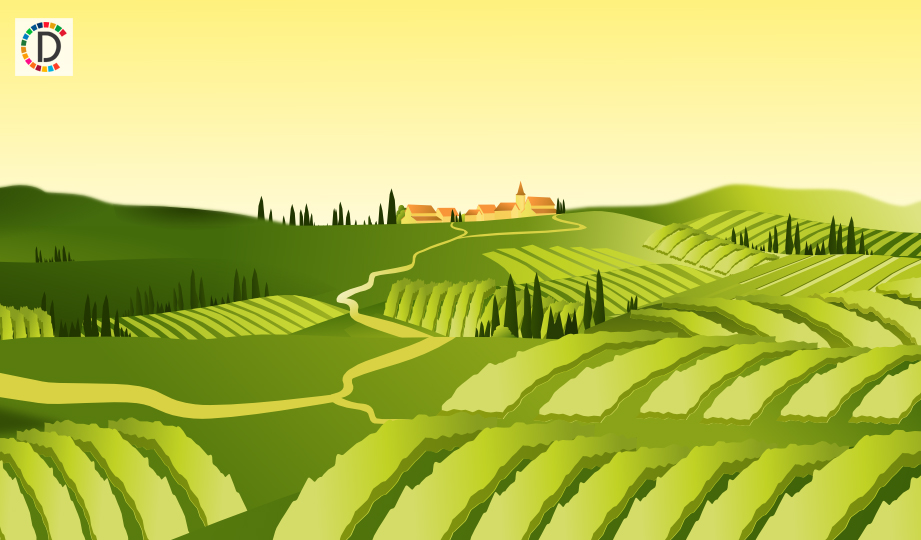Senegal’s embrace of the digital revolution in agriculture marks the way forward for Africa

- Country:
- Senegal
From April 28-30, Senegal’s capital city of Dakar played host to French Agricultural Research Centre for International Development’s (CIRAD) first-ever conference on digital agriculture, the AgriNuma conference. Bringing together farmers and innovators in the field of agricultural technology, the AgriNuma conference promoted the implementation of digital technology into the traditional agricultural methods and workflows that still dominate most of Africa’s farming. And with increasing food challenges created by climate change and a growing world population, new solutions in agriculture are needed now more than ever.
Outdated or substandard production techniques are in large part responsible for the staggering 1.6 billion tons of food that are lost or wasted each year. And this mismanagement of food leads to a financial loss estimated at $1.2 trillion a year, and increased malnutrition and hunger globally.
Similarly, misuse of food resources accounts for 8% of global greenhouse gas emissions according to a study conducted by the UN’s Food and Agriculture Organization and the World Resources Institute. Rising greenhouse gases in turn also negatively impact harvest yields, with a recent study of global vegetable and legume production concluding that yields could fall by 35 percent by 2100 if current greenhouse gas emissions continue unchecked.
And no continent is set to be more severely struck by the effects of climate change than Africa. By 2020, yields from rain-fed agriculture are projected to be reduced by up to 50 percent. Global warming of 2˚C would put over 50 percent of the continent's population at risk of undernourishment. And projections estimate that climate change will lead to an equivalent of 2 percent to 4 percent annual loss in GDP in the region by 2040, with the continent potentially facing climate change adaptation costs of $50 billion per year by 2050.
And as the continent most at risk, it is all the more imperative that Africa embrace new technologies to mitigate these effects. Agricultural technology presents a clear path forward in which digital solutions help farmers increase their yields and cut down on waste. Thankfully, initiatives such as the AgriNuma conference are leading the charge in embracing digital agriculture as a means to tackle the food-waste crisis.
“There is a digital revolution taking place in Africa at the moment,” says CIRAD deputy director Pascal Bonnet, “it’s a real hotbed of innovation where digital technology has really made big breakthroughs”.
For example, the Pix Fruit project developed by CIRAD and the Senegalese Institute for Agricultural Research, which allows mango farmers to more accurately estimate the size of their mango crop simply by taking photographs of mango trees with the Pix Fruit app, is one such breakthrough. Its AI system revolutionizes a task which was previously known to have wide margins of error and successfully limits waste.
Beyond digital tools, the field of precision agriculture has also emerged as an essential method for confronting issues of sustainability. Originally conceived in the 1990s, precision agriculture employs state-of-the-art technologies to bring more accuracy and control to crop production as a means to boost yields and cut waste.
For example, using geographic information system (GIS), software farmers are able to view their crops through heat maps, in which red indicates dead fields and green indicates healthy ones. In this way, farmers can avoid wasting fertilizer or insecticides on low-producing fields, and instead concentrate and conserve their resources for the green fields that will ultimately produce higher yields.
But while there is a high demand for digital solutions, there is still a way to go before precision agriculture can be implemented on a wide scale and contribute to its fullest extent. The push necessary to realize sweeping updates in agriculture will require cooperation across the farming sector. Without this coordination between players across the value chain, particularly between raw material producers and processors, there is an increased risk of waste, loss, and inefficiency.
For example, without well-designed agreements with those processing their crops, farmers may choose to harvest earlier than is optimal in order to generate immediate cash-flow, at the expense of producing more high-quality crops. Improved coordination among producers and suppliers could reduce these kinds of problems by a projected $60 billion annually.
The implementation of new agricultural technology will invariably need to be a wide-ranging effort, involving the collaboration of industries, governments, and academia alike. And this coordinated effort will require international corporate and governmental participation as well.
While Senegal and the rest of Africa are already well on their way towards progressive farming reform, it will be critical for Western governments and companies to also get more involved. The threat posed by climate change and the food-waste crisis is a global one. And with the coordinated support of governments and corporations internationally, and the participation of players throughout the food-production supply-chain, digital agriculture has the potential to be a global solution.










